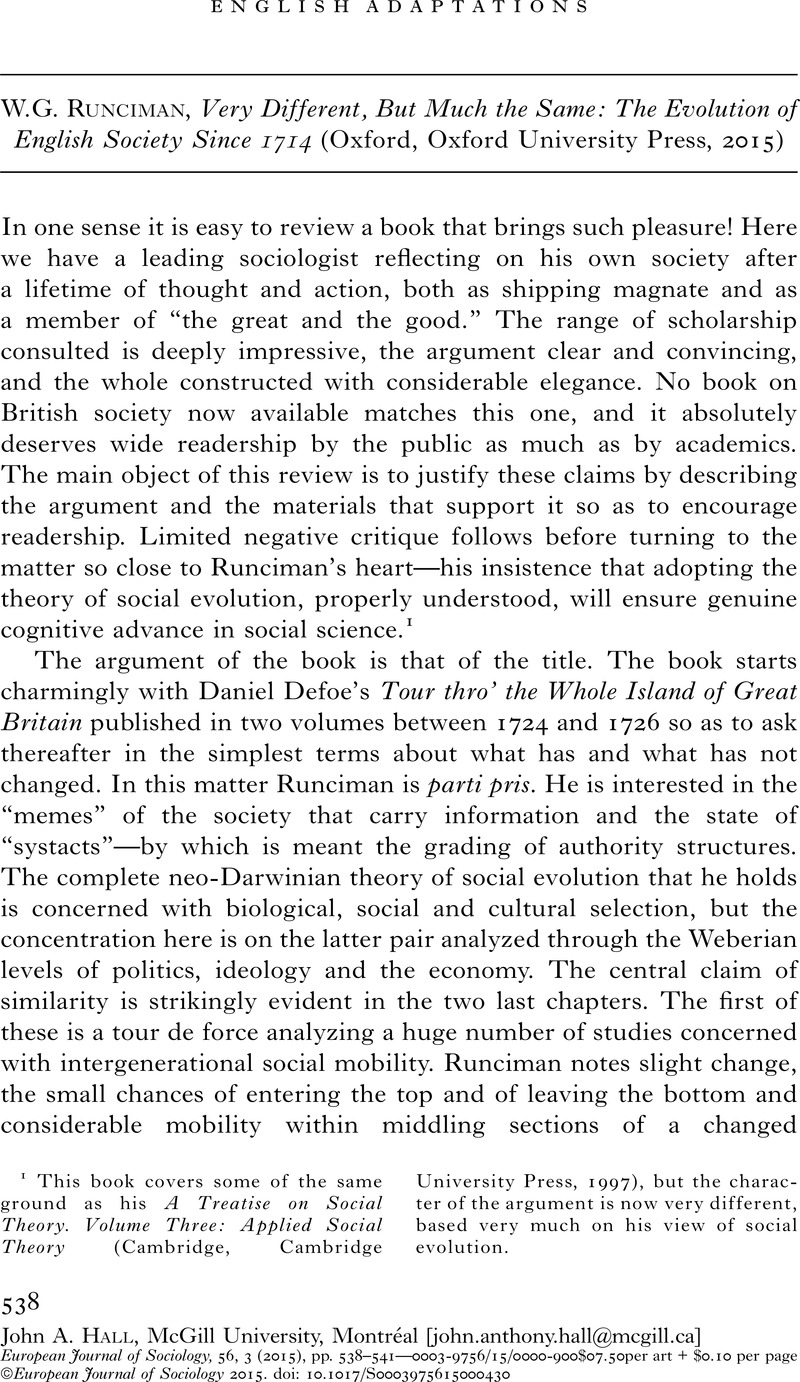No CrossRef data available.
Published online by Cambridge University Press: 30 December 2015

1 This book covers some of the same ground as his A Treatise on Social Theory. Volume Three: Applied Social Theory (Cambridge, Cambridge University Press, 1997), but the character of the argument is now very different, based very much on his view of social evolution.
2 The thesis was expounded in a large number of articles, but the key texts remain T. Nairn, “The British Political Elite” and P. Anderson, “Origins of the Present Crisis”, New Left Review, 23 January-February 1964. The thesis gained some of its fame as the result of E.P. Thompson’s merciless attack upon it, “The Peculiarities of the English”, Socialist Register, London, 1965, pp. 311-62.
3 G. Ingham, Capitalism Divided: City and Industry in British Social Development, London, Macmillan 1985; W.D. Rubinstein, Men of Property: The Very Wealthy in Britain since the Industrial Revolution, 2nd Edition, London, Social Affairs Unit, 2006.
4 This was suggested by A. Milward, The Reconstruction of Western Europe, 1945-51, Berkeley, University of California Press, 1984.